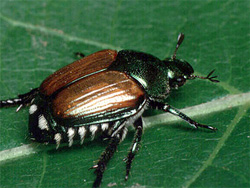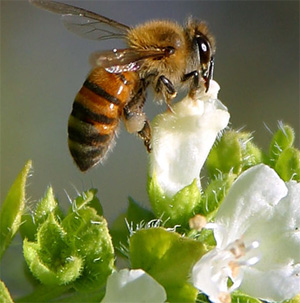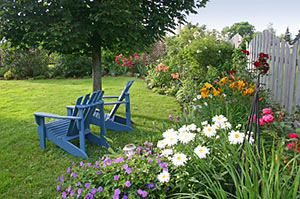Pests have always been a sore topic for all passionate gardeners. It is hard to accept something whose sole purpose in life is to destroy something that you have spent so much of your time and energy nurturing. Since the beginning of time, people have been trying to find ways to control the pests that so often infest vegetation.
Organic garden pest control is also a way that you can contain your pest problem. There are many products that can be used for this purpose. For instance, floating row covers have been very beneficial. They act as insect barriers, while still allowing enough sunlight to pass through them so that your vegetation can continue to grow.
You could also make use of pheromone traps to lure unwanted pests. This acts as a warning more than an actual form of control for garden pests. The reason behind this is that the pheromones attract only males. Therefore, as soon as you see your intended prey in your trap, you can launch your actual control strategies to counter the pests.
Sticky traps also work well by attracting insects to their colorful surface. Insecticidal soap is available in the market that was especially created for garden insect control. Various oil sprays are available in the market, which work by suffocating the pest.
Nature is a beautiful thing - for every problem, there has been a biological solution. Same is the case with pest control. We only have to look for the solution. And sometimes the homemade version of a pest deterrant is better and cheaper than what you can find in the store. For instance, ingredients like garlic and cayenne diluted and sprayed on the plants (sometimes called Fire Spray by garden enthusiasts) can keep harmful insects away from your precious garden.
Another important thing to note is the phrase 'harmful insects'. Yes, not all garden insects are bad for your garden; many insects are actually very good for your garden's health. Some even help during the fertilization and pollination of flowering parts. See our page on When a Bug is not a Pest. Pollination is a process where the pollen (the 'male' part) is transferred to the female organs of the same species. Sometimes it's done by wind transfer and sometimes by flying insects.
These beneficial pollinating insects include honey bees, hover-flies, lacewings, ladybugs, praying mantis, and many others. Lacewings actively consume aphids, which could destroy your garden. There are many shops online that let you order and purchase these insects so that you can directly release them into your garden, although they're not as common as they used to be.
Resources
Garden Insects and Pest Control from Colorado State University
Organic Pest Control, at Organic Gardening




